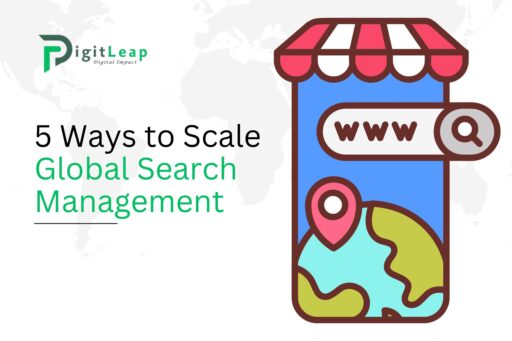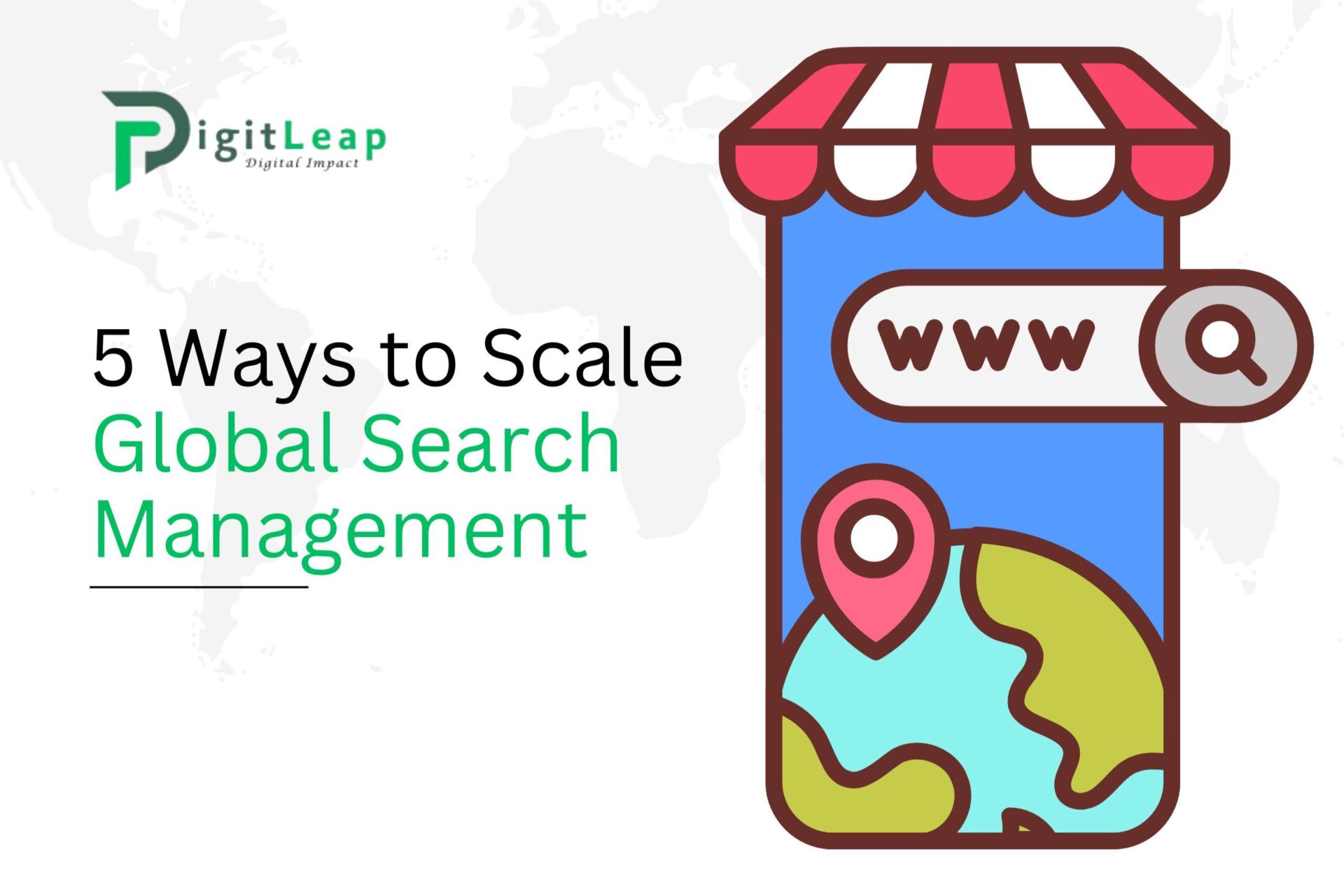5 Ways to Scale Global Search Management
In today’s hyper-connected world, businesses must navigate global markets to stay competitive. One key area where many companies struggle is managing search on a global scale. With diverse languages, cultural differences, and varying market demands, managing search engines and optimizing for search can be a daunting task. However, there are several effective strategies to help you scale your global search management. Let’s dive into five practical ways to do this.
1. Optimize for Local Search Engines
It’s easy to assume that optimizing for Google is enough, especially since it dominates in many countries. However, in certain regions, local search engines hold significant market share. For example, Yandex is widely used in Russia, while Baidu reigns supreme in China. Ignoring these platforms can mean missing out on huge opportunities in these regions.
To optimize for local search engines, you need to:
- Understand the specific ranking factors for each engine. For instance, Baidu gives higher weight to local Chinese content and prefers sites hosted on Chinese servers.
- Focus on local backlinks. While global SEO practices are similar, local search engines tend to favor links from regional domains.
- Keep up with local SEO trends and updates. Algorithms are constantly evolving, and local search engines may not operate under the same rules as Google.
By incorporating local search engines into your strategy, you ensure that your brand has visibility across different markets and can reach a broader audience.
2. Leverage Multilingual SEO
Scaling search management globally means catering to diverse languages. Simply translating your website isn’t enough—it’s essential to engage in multilingual SEO. This involves more than word-for-word translation; it’s about adapting your content to local markets so it resonates with native speakers.
Some tips for effective multilingual SEO include:
- Use hreflang tags: These HTML attributes help search engines understand which language and country your page targets. This ensures the correct version of your website appears for users in different regions.
- Adapt keyword research: A keyword that works in English may not have the same search volume or relevance in another language. Use local SEO tools and work with native speakers to identify high-impact keywords in each market.
- Localize content: Beyond translating words, consider local preferences, customs, and culture in your content. Localized content will appear more authentic and relevant to regional audiences, helping you build trust and engagement.
3. Invest in International Paid Search Campaigns
Organic search efforts are essential, but paid search campaigns can significantly boost visibility in global markets, especially when scaling quickly. International paid search campaigns (such as Google Ads, Yandex Direct, or Baidu PPC) require careful planning and execution.
Here’s how to make the most of international paid search:
- Geo-targeting: Most ad platforms allow you to target specific countries or regions. Use this feature to create tailored ad campaigns for each market, considering cultural nuances and time zone differences.
- Localized Ad Copy: Just like with SEO, your ads need to be localized for each market. This includes adapting the messaging to reflect local customs, values, and preferences.
- Budget Allocation: Allocate your budget based on the market potential. For example, you may need a higher budget in competitive markets like the U.S. or Germany, but could achieve great results in emerging markets with smaller budgets.
- Test and Refine: Paid search campaigns should be regularly monitored and adjusted based on performance data. Test different keywords, ad copy, and landing pages to optimize for conversions in each market.
By using international paid search, you can quickly increase your brand’s presence and capture new audiences in key global markets.
4. Implement a Scalable Content Strategy
Content is at the heart of search engine optimization, and managing content globally requires a well-thought-out strategy. A scalable content strategy helps you maintain consistency across markets while allowing flexibility to address local needs.
Here’s how to scale your content globally:
- Centralize core content: Create a content hub that contains your brand’s key messages, value propositions, and templates for different types of content. This ensures that all content across global markets aligns with your brand’s overall voice and goals.
- Localized content creation: While centralized content is important, it’s equally important to create market-specific content. Invest in local content creators who understand regional audiences and can craft content that resonates with them.
- Regular updates: Global search trends evolve, and so should your content. Stay ahead of the curve by regularly updating your content based on local search trends, user behavior, and cultural changes.
- Cross-border collaboration: Establish communication between your global marketing teams to share insights, content, and best practices across markets.
With a scalable content strategy, you can create personalized, relevant experiences for users in every market without overburdening your internal teams.
5. Utilize Global Search Data and Analytics
Data is one of the most powerful tools at your disposal for scaling global search management. By leveraging global search data, you can make informed decisions about which markets to prioritize, which keywords are driving traffic, and how users are interacting with your content across different regions.
Key steps to take advantage of global search data include:
- Segment analytics by region: Use Google Analytics or other tools to track traffic, conversions, and user behavior by region. This will help you identify which markets are performing well and where there is room for improvement.
- Monitor international keyword performance: Keep an eye on the performance of your international keyword strategy. Are certain keywords performing better in some countries than others? Adjust your strategy accordingly to maximize impact.
- Set up custom dashboards: Create custom dashboards that give you a real-time view of global performance metrics. This allows you to quickly spot trends and make data-driven decisions for your global SEO efforts.
- Use A/B testing: Don’t be afraid to experiment! Run A/B tests on different elements of your website and search campaigns across markets. This can reveal valuable insights about user preferences in different regions and help refine your approach.
By effectively utilizing global search data, you can stay on top of performance and ensure your strategy is scalable and adaptable to changing market conditions.
Conclusion
Scaling global search management is no easy feat, but with the right strategies in place, you can expand your brand’s presence across multiple regions and reach a diverse, global audience. Whether it’s optimizing for local search engines, leveraging multilingual SEO, running international paid search campaigns, or using global analytics to fine-tune your approach, each step brings you closer to success.
As you implement these strategies, keep in mind that global search management is not a one-size-fits-all solution. Flexibility, adaptability, and a deep understanding of local markets are crucial to scaling your search efforts effectively.
At DigitLeap, we specialize in helping businesses like yours manage and scale their global search strategy. With our expertise in international SEO, content localization, and data-driven search campaigns, we can take your brand’s global search management to the next level.
FAQs
Q.1 Why is it important to optimize for local search engines?
Optimizing for local search engines ensures your brand appears in front of regional audiences who may use search engines other than Google, such as Yandex or Baidu.
Q.2 What’s the difference between multilingual SEO and translation?
Multilingual SEO goes beyond simple translation, involving keyword research, localized content, and technical adjustments like hreflang tags to ensure your site ranks well in different languages and regions.
Q.3 How can I manage a scalable content strategy for global markets?
Start by centralizing core content and creating a framework that allows for localization. Regularly update your content based on local trends and encourage collaboration across your international teams.
Q.4 What are the benefits of running international paid search campaigns?
International paid search campaigns help you target specific regions, increase visibility quickly, and refine your messaging to better connect with local audiences.
Q.5 How do I use global search data to improve performance?
Segment your analytics by region, track keyword performance, and set up custom dashboards to gain insights into how your global search strategy is performing across different markets.






